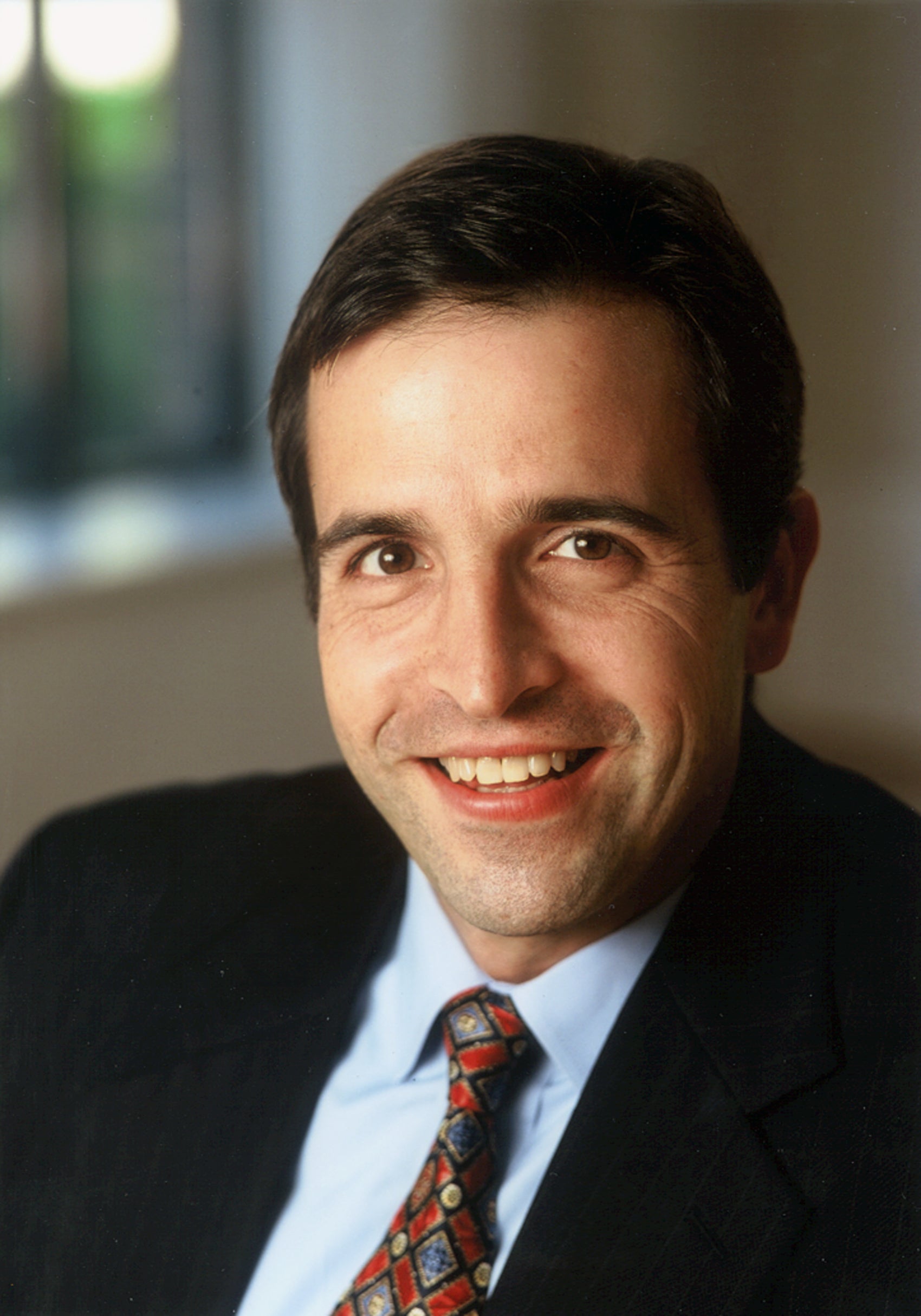Law firms must “innovate or face decline in transactional revenues.”
That was the message delivered by Professor George Triantis yesterday in a lecture marking his appointment to the Eli Goldston Professorship of Law.
Triantis, whose wide-ranging scholarship spans the fields of bankruptcy law, contracts, corporate finance and secured transactions, joined the HLS faculty as a tenured professor in 2006, coming from the University of Virginia. Yesterday, his colleagues, students and family were on hand in Langdell Hall’s Caspersen Room as Dean Elena Kagan ’86 formally presented him with his new professorship.
The Goldston chair was established in honor of the late Eli Goldston ’49, a lawyer, businessman and philanthropist known for his dedication to corporate responsibility and the belief that innovation in law and business could redress many socioeconomic problems.
“It’s fitting that we find this same spirit of practical optimism in George Triantis’ wide-ranging work,” said Kagan. “George is one of the nation’s most eminent law-and-economics scholars in commercial law, and his arrival at HLS has significantly enhanced our already stellar law and economics program.”
In his lecture, Triantis surveyed the reasons why major U.S. law firms have enjoyed robust growth in their transactional practices over the past several decades, including the fact that they have often provided their clients with substantial business guidance in addition to legal advice. But he warned that many of the services they’ve offered are increasingly provided by others—investment bankers, management consultants, accountants, offshore outsourcing firms, and other business professionals—more cheaply.
Triantis observed that transactional firms grew and rose to prominence by negotiating and drafting three kinds of contracts: “standardized” contracts that are easily adaptable for use by successive clients; “innovative” contracts; and “tailored” contracts uniquely geared to their clients’ particular circumstances. But increasingly, he said, law firms are losing market share to other players in all three categories.
“Standardized” contracts can be executed more efficiently by in-house corporate legal departments and offshore outsourcing firms, Triantis said. And, all too rarely does one see the kind of innovation displayed by Wachtell Lipton, for example, when it designed “poison pill” provisions to ward-off hostile merger attempts—and that firm’s equally novel promise (to skittish clients) to vigorously litigate all challenges to the pill.
Even if we start to see more innovation in contract design, Triantis said, it is likely to be collaborative (much like open-source software—get ready for “wiki contracts”), raising questions about whether firms will even be able to claim any proprietary interest in it.
“If law firms are squeezed out of the commodified contracts business and are unable to capture advantages in innovating contracts, their practice will be increasingly devoted to the service of tailoring transactions,” Triantis said. “Yet, even within these tailored transactions, law firms are surrendering a growing portion of the transaction tasks—such as negotiation and transaction design—to business professionals.”
To recapture lost market share and to stem the tide against further erosion, Triantis said, law firms should refocus on innovative contract design that does what other business professionals can’t do as well: anticipate and plan for what happens if and when a deal doesn’t work out—litigation.
“Litigation, in its various forms, is the core competency from which lawyers can derive comparative advantage in designing transactions for their clients,” said Triantis. “Lawyers can help their clients choose the mode of enforcement and mold their legal commitments accordingly, knowing that they will be enforced through or in the shadow of an adversarial judicial process. Yet, it seems underappreciated in practice. … The modern law firm is organized around practice groups. Two of these groups—litigation practice and corporate transactions—often fail to mesh at the interface of particular transactions because the firm that litigates a transaction is often not the firm that did the deal in the first instance. … By connecting these two services, rather than treating them as distinct tasks or modules, law firms can recapture some of the lost revenues.”
Some—but not all. “I doubt that the corporate law firm will be able to restore the central role it played in transactions in its heyday in twentieth century America,” he concluded, Along with a Bachelor of Laws degree from the University of Toronto, Triantis holds an LL.M. from the University of Virginia and an S.J.D. from Stanford Law School. He began his teaching career in 1989 on the University of Toronto Faculty of Law and Faculty of Management. In 1994, he was appointed to a professorship at the University of Virginia School of Law, and in 1999 he accepted a professorship at the University of Chicago Law School, and became the Seymour Logan Professor of Law. He returned to Virginia in 2001 as the Perre Bowen Professor of Law, a position he held until he joined the HLS faculty in 2006.
Among his professional activities, he has served as an editor of the Journal of Law and Economics and on the Board of The American Law and Economics Association.
Eli Goldston began his career at the Cleveland law firm of Hahn, Loeser, Keough, Freedheim, and Dean, where he became a partner. From there he moved to Midland Enterprises, Inc., of Cincinnati, serving as president in 1961-62, and when Eastern Gas and Fuel acquired Midland in 1962, he moved to Boston with the firm. In 1963, he was named CEO and a director of Eastern Gas, where he directed a large diversified energy corporation with 19 subsidiaries in the bituminous coal, coke, gas utility and river-ocean marine industries.
Goldston served on several corporate boards and was active in a range of philanthropic pursuits. He served on the visiting committees of Harvard, MIT, and Carnegie Mellon, and in 1972, he took a temporary leave from business to be a visiting fellow at the London University Graduate School of Business. He also served on the Advisory Council to the Ford Foundation’s Energy Policy Project.
Goldston died in 1974 at age 53—four years before the establishment of the chair in his name.
